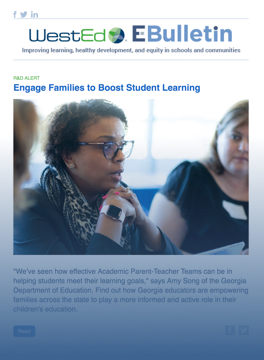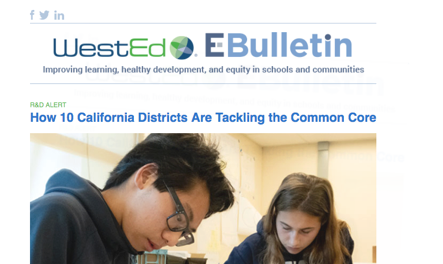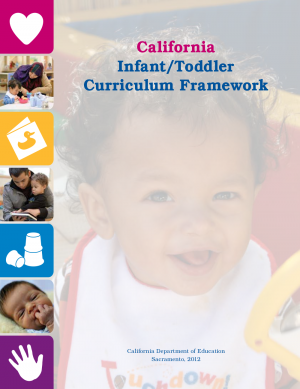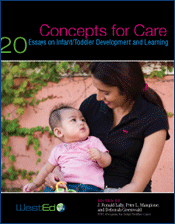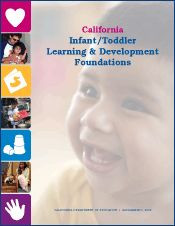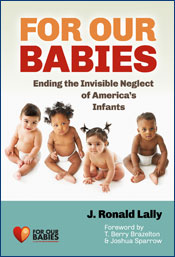California Infant/Toddler Curriculum Framework
Description
As a companion to the California Infant/Toddler Learning and Development Foundations, the California Infant/Toddler Curriculum Framework provides early childhood professionals with a structure they can use to make informed decisions about curriculum practices. It presents general guidance on planning learning environments and experiences for young children.
The Framework is based on research on how infants and toddlers learn and develop and is intended to be consistent with a broad range of curricula or specific curricular approaches. It presents principles for supporting early learning, a planning process, and strategies to assist infant/toddler care teachers in their efforts to support children’s learning from birth to age three.
It also includes a sampling of strategies for building on children’s competencies and interests in four major developmental domains and describes the types of environments and materials that engage young children in learning.
The Infant/Toddler Curriculum Framework rests on four guiding principles:
- The family is at the core of a young child’s learning and development.
- Infant/toddler development takes place in the context of relationships.
- The young child’s emotional state drives early learning and greatly influences learning in other domains.
- All young children, including children with disabilities or other special needs, benefit from access to high-quality infant/toddler care programs.
This publication was developed by the California Department of Education and WestEd’s Center for Child & Family Studies and is aligned with the Preschool Curriculum Framework.
Resource Details
Product Information
Copyright: 2012Format: PDF
Pages: 160
Publisher: California Department of Education
Stay Connected
Subscribe to the E-Bulletin and receive regular updates on research, free resources, solutions, and job postings from WestEd.
Your download will be available after you subscribe, or choose no thanks.
